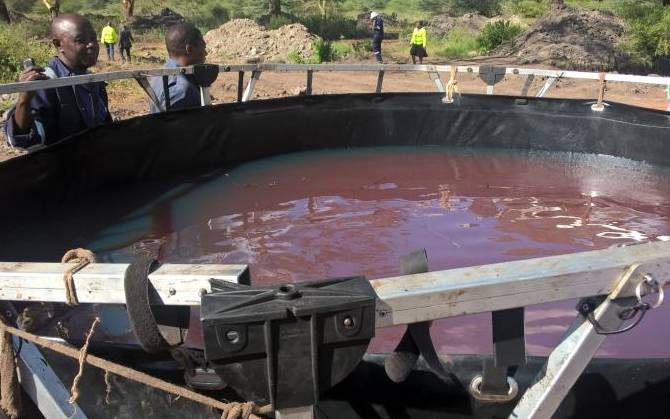×
The Standard e-Paper
Kenya’s Boldest Voice

Some of dug shallow trenches filled with oil at Kiboko water catchment area, Makueni County where oil spill occurred on March 30 along the newly opened 48 Billion Mombasa-Nairobi Kenya Pipeline. Photo 3. An open tank containing a mixture of water and oil extracted from trenches at Kiboko oil spill site. [File, Standard]
A stalemate rocked a meeting called to address an oil spillage that hit Kiboko natural springs on the newly-constructed Sh48 billion Mombasa-Nairobi oil pipeline.